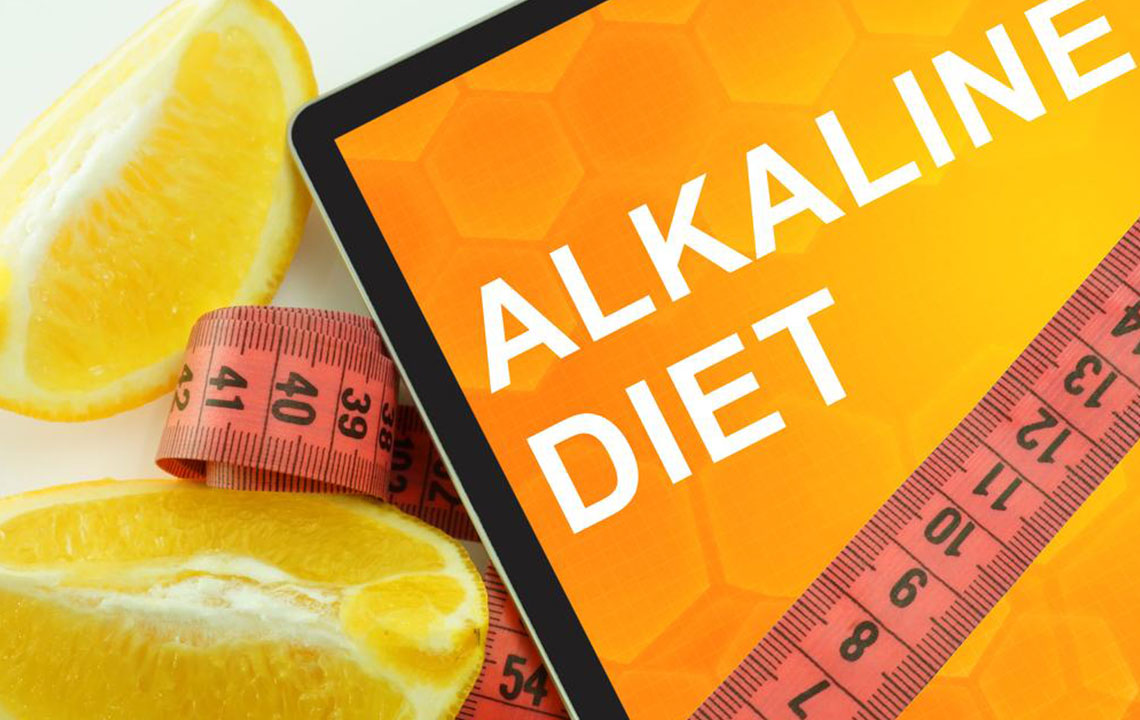Essential Benefits of a Healthy Alkaline Diet
The alkaline diet is centered around maintaining a balanced pH level in the body. While our stomach is acidic due to the presence of gastric acids in it, our blood is slightly alkaline. Maintaining the right pH is crucial to healthy living.
In an alkaline diet, you will try to consume alkaline foods such as fresh fruits and vegetables, soya, tofu, and certain types of legumes, nuts, and beans.

Because of its emphasis on fresh fruits and vegetables, this diet helps combat heart disease, cholesterol, and type 2 diabetes as well. It can also aid in bone health and help combat deficiency of nutrients.
Generally, try to adhere to foods with greater alkaline content and stay away from foods that are acidic. Maintain a diet and follow the alkaline food chart to ward off the unwanted health-related issues. Here is a quick guide to what to eat and what you should avoid.
Include alkaline foods
To begin with, you can have water that is alkaline, that is with a pH of around 9. You can add lime or baking soda to your water which results in high level of alkaline.
According to an alkaline food chart, fresh vegetables and fruits are one of the best ways to maintain the alkalinity of the body. You can have foods such as citrus fruits, dates, spinach, mushrooms, grapefruit, tomatoes, avocado, wheatgrass, and barley grass. You can also have cucumber, broccoli, kale, garlic, ginger, green beans, celery, asparagus, watermelon, and figs.
Try to have raw food. Fruits and vegetables that are fresh and not cooked have a huge part to play in stabilizing the pH levels in your body. The process of cooking food, in fact, reduces minerals (that enhance alkalinity) in the same. You can boil, steam or juice fruits and vegetables. As this diet eliminates meat, you can have some types of beans and legumes for your protein intake. For instance, you can have almonds, lentils, lima beans, or red beans.
Besides, fresh, raw produce, you can have juices or smoothies made from green vegetables. An alkaline food chart includes the food that you can eat and avoid to maintain a healthy pH. Let’s take a look at them.
Foods High in Alkalinity
Some of the foods that are high in alkalinity, you can eat are:
Fruits And Veggies
Avocado, asparagus, wheatgrass, celery, broccoli, cabbage, cucumber, onion, parsley, ginger, soya etc. are some of the fruits and veggies that have a high alkaline content.
Foods having Moderate Alkalinity
You can also include foods that have moderate alkalinity in your diet. Some of them include apricots, carrots, cashews, grapefruit, pepper, honeydew, peas, turnip, raspberries, and zucchini.
While there is a lot of food that you can eat, there are many that you need to avoid as well.
Avoid acidic foods:
You should avoid foods that may lead to acidity.
Avoid foods rich in sodium. Processed products are a strict no, as they are high in sodium. Foods loaded with salt lead to the constriction of blood vessels and enhance acidity. Avoid cereals that are processed as well. You also need to avoid meat, including cold cuts and even other forms including lean meat. Alcohol and caffeine aren’t a part of an alkaline diet as well.
Milk and dairy products that that are high in calcium can, contrary to popular belief, in fact, lead to osteoporosis. This is because they enhance the acidity of your body. As blood turns more acidic, more calcium is taken up from the bones so as to maintain the equilibrium of pH levels. Hence, including a lot of green vegetables in your diet, preferably when eaten raw, is a good preventive measure against osteoporosis.
Some acidic food that you should avoid are:
- Alcohol
- Cocoa
- Coffee
- Jam and Jelly
- Vinegar
- Yeast
- Mustard
- Honey
- Meat and fish
- White Rice
- White pasta
- Shellfish
- Liquor
- Milk and dairy products
Ketchup, mayonnaise, butter and even whole wheat products, walnuts, and certain fruits such as oranges, blueberries, cranberries, grapes, peach, and papaya are moderately acidic.
The alkaline food chart includes a diet that is suited for vegetarians and may be easier to follow for vegans as well, as it eliminates dairy products. You should also avoid walnuts, peanuts, bread, pasta, and rice.
Habits such as alcohol consumption, taking drugs and increased coffee intake contribute greatly to acidity. Usage of antibiotics beyond required amounts also leads to acidity.
You should try to keep your stress in check, have fresh, organic produce, foods that are high in fiber, and avoid processed foods and meat which should not be included in the alkaline food chart. Though the diet does not specify exercise, you should try to maintain a healthy lifestyle in general, and exercise contributes to the same. Even factors such as certain pesticides, food preservatives, or increased pollution can lead to more acidity in the body.











